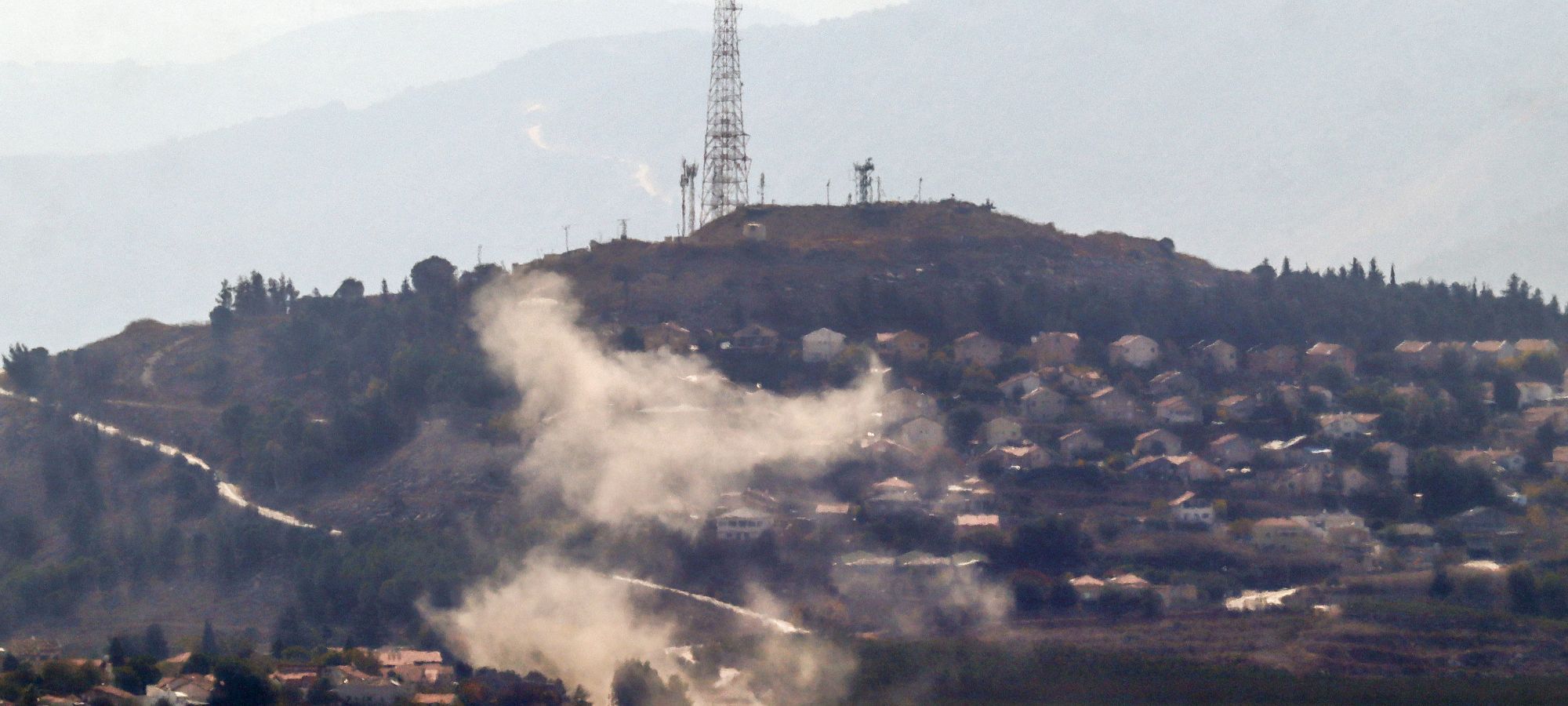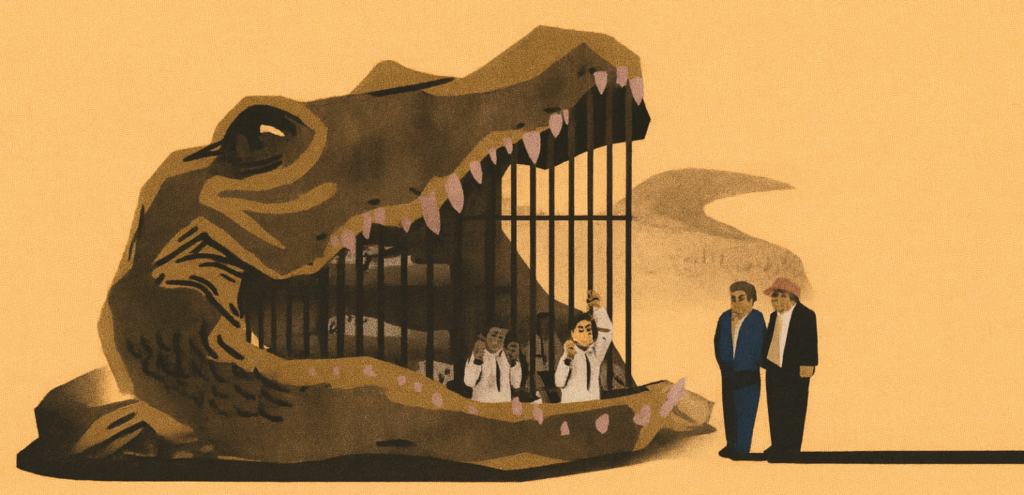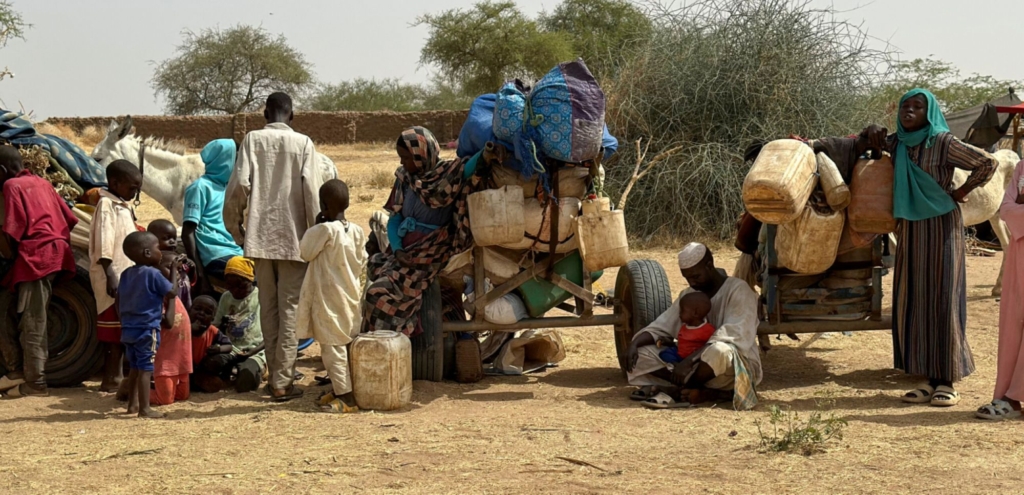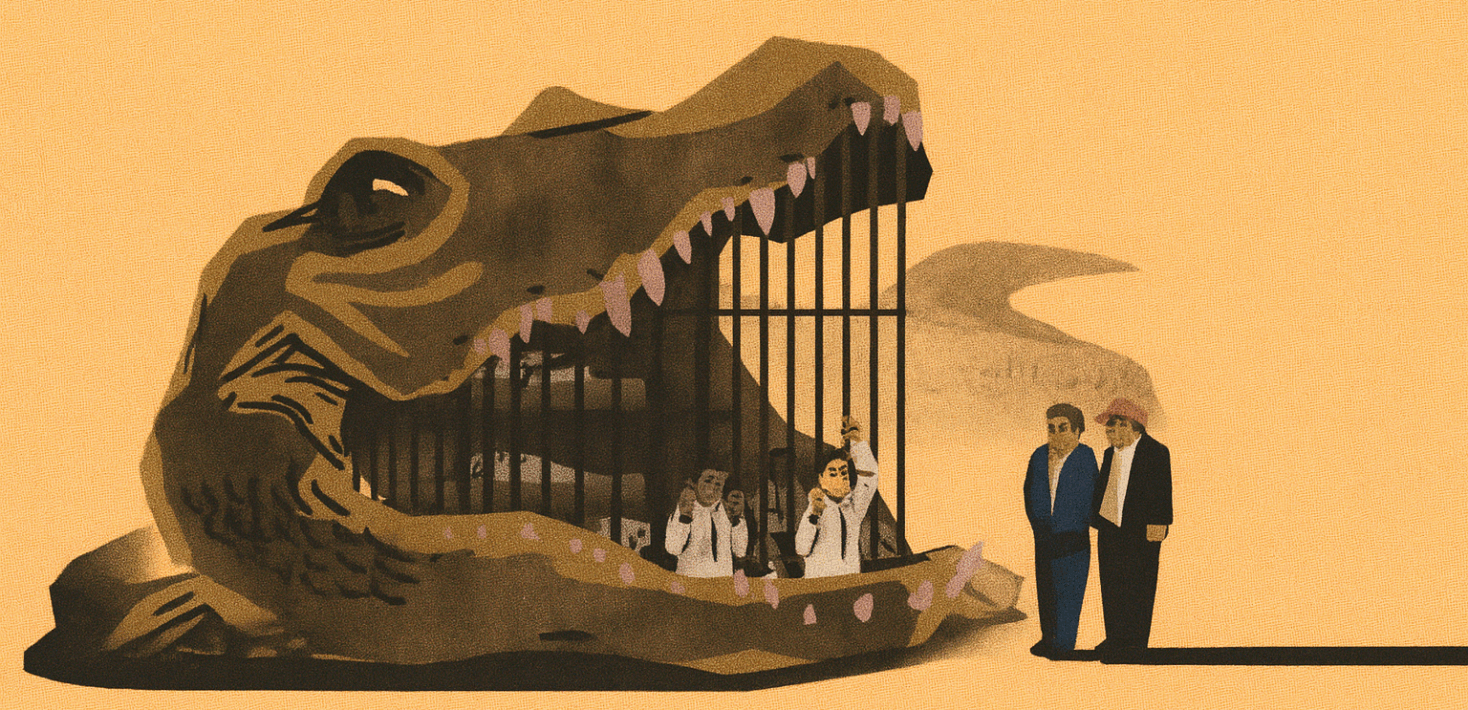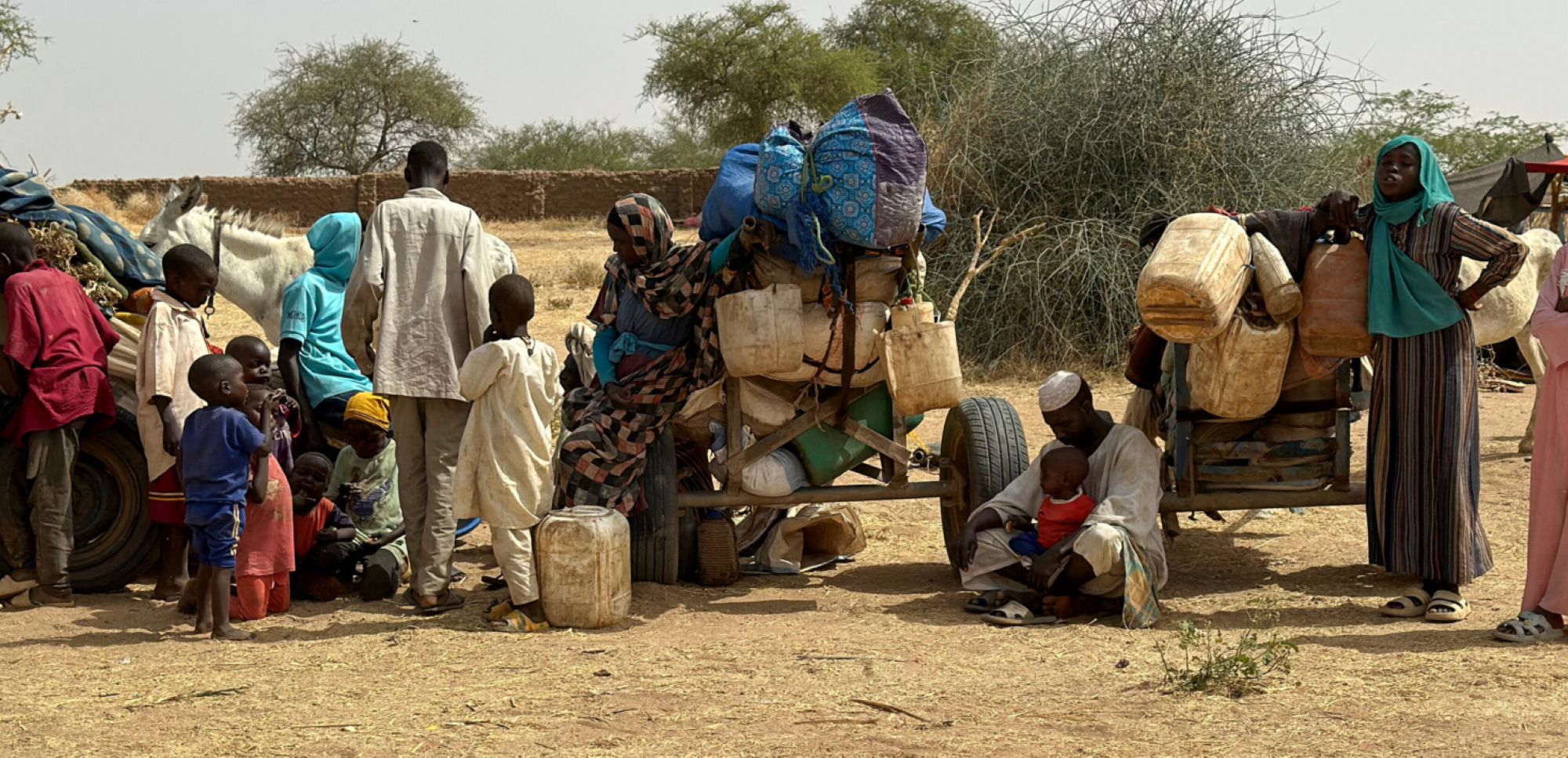- Video evidence indicates repeated use of inherently inaccurate weapons in Hezbollah attacks on Israel
- Three strikes killing eight civilians and injuring at least 16 others in October 2024 amount to war crimes
- “Hezbollah’s reckless use of unguided rocket salvos has killed and wounded civilians” – Agnès Callamard
Crimes under international law
Over the last three months, Amnesty International has investigated crimes under international law committed in the context of Israel’s Operation Northern Arrows, which began on September 23, 2024. During the first day alone, Israeli forces carried out at least 1,600 strikes in areas across Lebanon, which struck villages and towns across Lebanon and killed more than 500 people. Hezbollah launched more than 200 rockets towards Israel.
This investigation focuses on Hezbollah‘s repeated unguided rocket salvos fired into populated civilian areas of Israel for months in attacks that violate international humanitarian law. Amnesty International has previously documented how Israel has carried out unlawful air strikes that killed 49 civilians, which must be investigated as war crimes, and issued inadequate evacuation warnings for civilians in violation of their obligations under international law.
‘Unlawful’ Hezbollah attacks in Israel
Amnesty International documented three Hezbollah rocket attacks on civilian areas of Israel in October 2024 that killed eight civilians and injured at least 16 more that must be investigated as war crimes.
Two Amnesty International weapons experts analysed 12 videos produced by Hezbollah that show examples of such rockets being fired, as well as hundreds of Hezbollah statements posted to their Telegram channel explaining the targets of the strikes.
In the weeks prior to the ceasefire agreed between Israel and Lebanon, Hezbollah had announced they were firing rockets at cities and towns, including Haifa, Tiberias, Acre, Safed, Karmiel, Kfar Giladi and the Krayot area, among others. In some cases, they insisted they were aiming at military targets, but in others, they said they were attacking the civilian city or town generally.
In the videos, Amnesty International identified unguided 122mm, 220mm, 240mm, and 302mm multiple-launch rocket systems. Such rockets are inherently inaccurate, as it is not possible to aim them with any degree of confidence or determine exactly where they will strike. Their use in areas with concentrations of civilians, therefore, violates the bedrock principle of distinction under international humanitarian law.
Civilians and civilian objects are not targets and must be protected. Direct attacks on civilians and civilian objects and indiscriminate attacks that kill and injure civilians must be investigated as war crimes.
Agnès Callamard, Amnesty International’s Secretary General
“Hezbollah’s reckless use of unguided rocket salvos has killed and wounded civilians and destroyed and damaged civilian homes in Israel,” said Agnès Callamard, Amnesty International’s Secretary General.
“The use of these inherently inaccurate weapons in or near populated civilian areas amounts to prima facie violations of international humanitarian law. Civilians and civilian objects are not targets and must be protected. Direct attacks on civilians and civilian objects and indiscriminate attacks that kill and injure civilians must be investigated as war crimes.”
Hezbollah began firing salvos into the occupied Shebaa Farms territory on October 8, 2023, “in solidarity” with Hamas and other Palestinian armed groups following their attack on Israel and atrocity crimes on October 7, 2023. In response, Israel launched attacks on south Lebanon. Since then, Israel and Hezbollah have been engaged in cross-border attacks.
‘Unlawful’ air strikes in Lebanon
The conflict between Hezbollah and Israel has significantly impacted civilians, particularly in Lebanon. Israeli attacks across Lebanon have killed an estimated 4,047 people, including entire families, injured 16,000 more, and displaced an estimated 1.2 million, including through the use of misleading and inadequate “evacuation” warnings.
Amnesty International has documented how, in recent months, Israeli forces carried out four unlawful air strikes on residential buildings in southern Lebanon, in the Bekaa Valley and northern Lebanon, killing a total of 49 civilians, which must be investigated as war crimes.
Israel has also targeted branches of Qard al-Hassan, a financial institution affiliated with Hezbollah, with more than 30 branches across the country in densely packed residential neighbourhoods in violation of international humanitarian law, given this institution is not a legitimate military target.
Hezbollah attacks in Israel have killed more than 100 people, and an estimated 63,000 residents in northern Israel have been displaced. Hezbollah has fired thousands of inherently inaccurate rockets into Israel and the occupied Syrian Golan Heights. Military research institutes have estimated that more than 95% of the approximately 100,000 to 200,000 long-range weapons in Hezbollah’s inventory are unguided. Israel has an Iron Dome air defence system capable of intercepting and destroying rockets.
Civilians killed in strikes
Although some of the northern border areas struck by indiscriminate Hezbollah rocket fire had been largely evacuated of Israeli civilians, Amnesty International documented three Hezbollah rocket attacks on Israeli cities and towns that killed eight civilians and injured at least 16 others following the escalation of the conflict in late September 2024. Amnesty International’s Evidence Lab verified a total of 13 videos and six photos related to these attacks.
On October 29, 2024, at approximately 10:40 am, Hezbollah fired a salvo of rockets into northern Israel, killing Mohammed Naim, a 23-year-old Palestinian citizen of Israel, when one of the rockets munitions his house in Tarshiha. Israel’s Ministry of Foreign Affairs said 13 other people were injured in the strike.
Yasser Naim, Mohammed’s father, told Amnesty International that his son was taking his two younger siblings to a shelter inside their home when the rocket hit. Mohammed Naim was only seconds from reaching the shelter safely when he was killed. Yasser Naim said dozens of rockets were directed at the town and that Israel’s Iron Dome missile defence system had failed to intercept some of the incoming projectiles. He added: “Not every home could be protected.”
Initially, Hezbollah announced on their Telegram channel that the target was the village of Kfar Vradim. However, after news broke that a Palestinian citizen of Israel had been killed some hours later, Hezbollah revised their announcement and published a video claiming that they had targeted Israeli soldiers in Ma’alot-Tarshiha.
On October 31, 2024, Hezbollah fired 18 salvos of inherently inaccurate rockets at towns on both sides of the border, including the cities of Karmiel and Acre in Israel and the Haifa suburbs of Krayot, according to their statement posted on Telegram. The Israeli military said a total of 90 rockets from those attacks struck inside Israel. In two of the attacks, a total of seven civilians were killed. Hezbollah said the intended targets of those strikes were Israeli military forces south of Khiam in Lebanon and the area of Krayot in Israel.
The first strike hit an orchard in the Israeli town of Metula, rather than Israeli soldiers on the Lebanese side of the border some distance away in Khiam, and killed five civilians on a farm: Omer Weinstein, an Israeli man, and four Thai migrant workers, named as Akkapon Wannasai, Prayat Pilasram, Kaweesak Papanang, and Thana Tichantuek. A sixth person was injured.
In the second attack, Mina Shafiq Hassoun, 60, and her son Karmi Raja Hassoun, 30, Palestinian citizens of Israel, were killed while picking olives in an orchard between Shefa-‘Amr and Kiryat Ata. Two others were injured.
Hezbollah published a video allegedly showing the weapons launch and stating the target was the civilian suburbs of Krayot along the Israeli coast. The attack was carried out using unguided 220mm Fadi-1 rockets. The inherent inaccuracy of these rockets and the unlawfulness of using them, even against military targets in civilian areas, is demonstrated by the fact that the location actually struck was approximately seven kilometres from the announced target.
International humanitarian law
Under international humanitarian law, the parties to a conflict must always distinguish between civilians or civilian objects and combatants or military objectives. Attacks may only be directed against combatants and military objectives. Attacks must not be directed against civilians. Both direct attacks on civilians and civilian objects and the use of inherently inaccurate munitions on areas containing civilians, which constitutes an indiscriminate attack, violate international humanitarian law.
While in some cases, Israel places military forces in or near civilian areas, this does not absolve Hezbollah of the responsibility to take feasible precautions at all times to avoid or, in any event, minimize harm to civilians and damage to civilian infrastructure.
Using explosive weapons with wide area effects, such as rocket salvos that contain explosive warheads and impact a large area in the vicinity of densely populated residential areas, is likely to violate the prohibition of indiscriminate attacks and can also lead to disproportionate attacks.
Making the civilian population or civilian objects the object of attacks and launching an indiscriminate attack resulting in death or injury to civilians are war crimes.
Background
Amnesty International recently released a major report that concluded Israel has committed and is continuing to commit genocide against Palestinians in the occupied Gaza Strip. Amnesty International has also found evidence of war crimes by Israeli forces, including direct attacks on civilians and civilian objects or indiscriminate attacks, as well as other unlawful attacks and collective punishment of the civilian population in the occupied Gaza Strip.
For more information or to arrange an interview, please contact: laurie.hanna@amnesty.org
Contact:
telephone: +44 203 036 5566
email: press@amnesty.org
x: @amnestypress
Top Photo: This picture taken from the southern Lebanese area of Marjayoun shows smoke billowing from the site of a rocket attack from Lebanon in the Israeli town of Metula (background) on October 31, 2024, amid the ongoing war between Israel and Hezbollah. (Photo by -/AFP via Getty Images)












